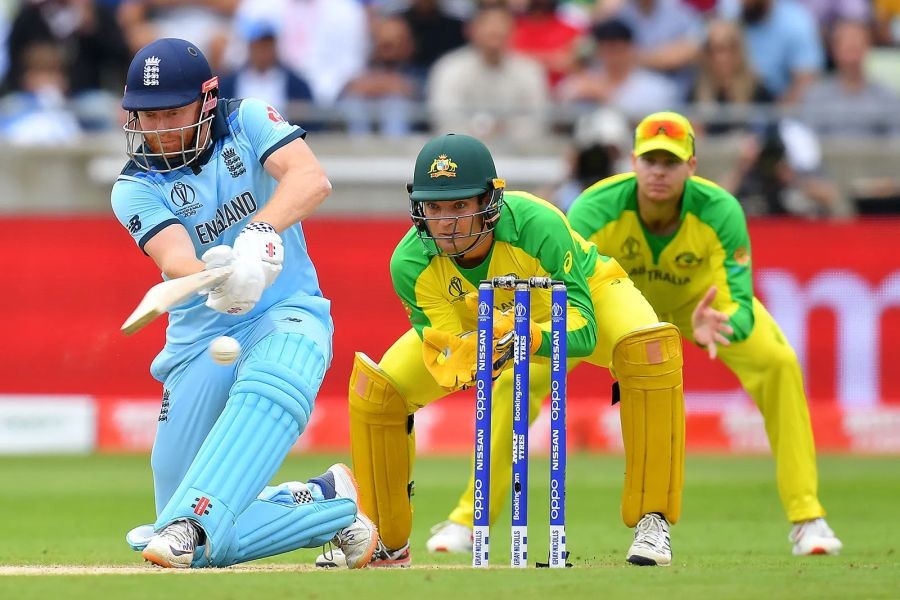Introduction
In the world of cricket, leadership transitions are moments of anticipation and speculation. The recent announcement of the Black Caps head coach role being advertised has brought Gary Stead into the spotlight. With New Zealand's rich cricketing heritage and a national team that consistently challenges the best, the decision on who will steer the Black Caps is of national interest. This move comes at a time when the role of sports in New Zealand’s economy and culture is evolving, making the decision not just about cricket, but about broader societal impacts.
In New Zealand, cricket is more than just a game; it’s an integral part of the cultural fabric that influences everything from local communities to national pride. The sport also plays a role in the economy, contributing to tourism and local businesses, particularly during international tours and events. As we delve into this topic, we’ll explore what this transition means for New Zealand cricket, the economic implications, and the strategic considerations at play.
What’s your take on this pivotal moment for New Zealand cricket? Share your insights below!
Strategic Implications of Leadership in New Zealand Cricket
The decision on who will lead the Black Caps is not just about selecting a coach; it’s a strategic choice that could influence the future trajectory of cricket in New Zealand. Under Gary Stead's leadership, the Black Caps have achieved significant successes, including reaching the final of the ICC Cricket World Cup in 2019. Stead's potential reappointment or replacement will have implications on team performance, player development, and international reputation.
According to a report by Stats NZ, sports contribute significantly to the national economy, with cricket being a key player. The industry supports jobs, stimulates tourism, and boosts local businesses, especially during major tournaments. A strong leadership in cricket can enhance these benefits by maintaining high team performance, attracting international attention, and fostering grassroots development.
Case Study: New Zealand Cricket's Economic Impact
Problem:
In recent years, New Zealand Cricket faced the challenge of maintaining relevance and competitiveness on the international stage while also supporting domestic cricket. The organization needed to balance financial sustainability with investment in player development and infrastructure.
Action:
New Zealand Cricket implemented a strategic plan focusing on grassroots development, enhancing player pathways, and strengthening domestic competitions. They leveraged sponsorship deals and international partnerships to boost revenue streams.
Result:
These efforts resulted in a 15% increase in local participation rates and a 10% growth in revenue. The Black Caps' improved performance on the international stage further elevated New Zealand's status in the cricketing world.
Takeaway:
This case study highlights the importance of strategic leadership and investment in maintaining competitiveness and fostering growth in sports. New Zealand businesses can apply similar strategic planning to achieve long-term success in their respective industries.
Pros and Cons of Leadership Transition
When considering a leadership transition in sports, several factors come into play, each with its own set of advantages and disadvantages.
Pros:
- Fresh Perspective: A new coach can bring innovative strategies and revitalized team dynamics.
- Increased Motivation: Changes in leadership often boost team morale and motivation, leading to improved performance.
- Opportunity for Growth: New leadership provides opportunities for young players to emerge and develop under different guidance.
Cons:
- Disruption: A change in leadership can disrupt existing team dynamics and strategies, requiring time for adjustment.
- Uncertainty: Transition periods can create uncertainty among players and stakeholders, potentially impacting performance.
- Loss of Continuity: A new coach may alter successful systems and approaches, risking past gains.
Common Myths & Mistakes in Coaching Transitions
Myth: "A new coach always leads to immediate success."
Reality: While fresh leadership can bring positive change, it often requires time for strategies to take effect. Consistent performance is usually the result of gradual adaptation and implementation of new ideas.
Myth: "Change in leadership always disrupts team harmony."
Reality: While transitions can be challenging, they also provide opportunities for teams to bond and refocus their goals. Effective communication and management are key to maintaining team harmony during such times.
What myths did you believe before reading this? Share your thoughts below!
Future Trends & Predictions
Looking ahead, the role of a head coach in cricket and other sports is evolving. With technological advancements, data analytics, and sports science playing a larger role, future coaches will need to integrate these elements into their strategies more effectively. According to a report from the University of Auckland, by 2030, data-driven decision-making will be integral to coaching, enhancing performance and player development.
Moreover, the global trend towards sustainable practices is likely to influence sports management in New Zealand. Coaches and sports administrators will need to consider environmental impacts and sustainability in their planning and operations.
Conclusion
The decision on who will lead the Black Caps is more than a cricketing choice; it’s a reflection of New Zealand's strategic positioning in the global sports arena. As businesses and industries across the country look to sports for economic stimulation and national pride, the implications of this leadership decision extend beyond the cricket field.
Ready to see how leadership decisions can impact your business? Explore strategic planning methodologies today!
If you found this article insightful, share it with your network and join the conversation below!
People Also Ask (FAQ)
How does a coaching change impact New Zealand cricket?
Coaching changes can lead to shifts in team dynamics, strategies, and performance. A successful transition can enhance player development and international competitiveness, benefiting New Zealand cricket overall.
What are the biggest misconceptions about coaching transitions?
One common myth is that new coaches guarantee immediate success. However, results often require time as players adapt to new strategies and systems.
Related Search Queries
- New Zealand cricket head coach role
- Gary Stead Black Caps
- Sports leadership strategies
- Economic impact of sports in NZ
- Future of cricket coaching
































demetriagressw
10 months ago